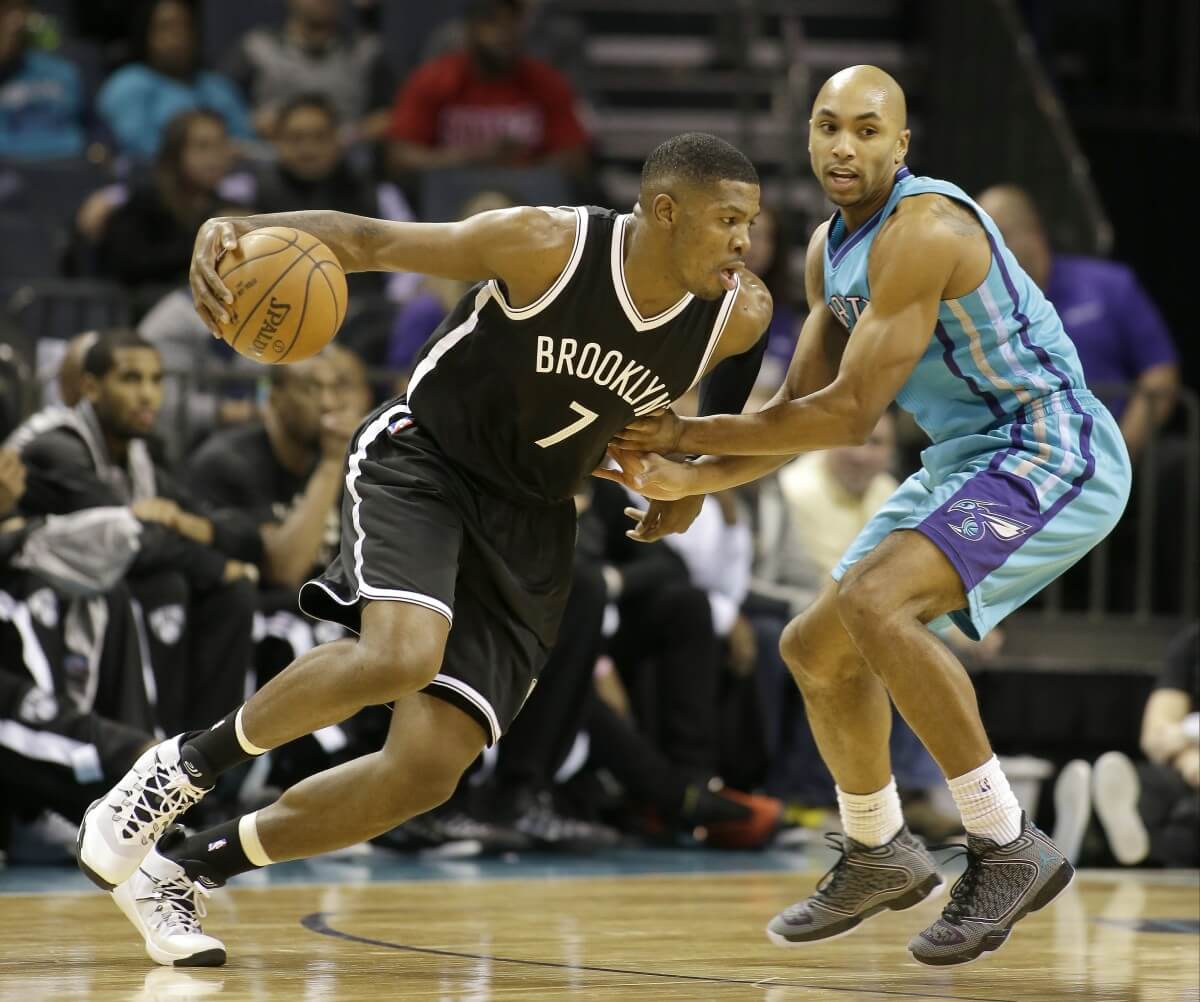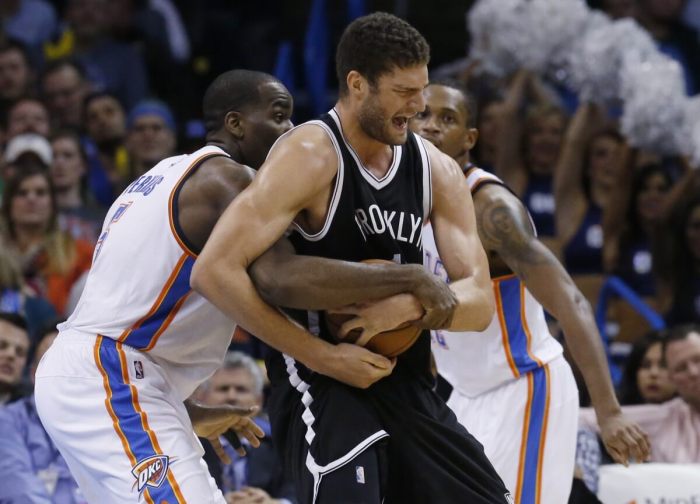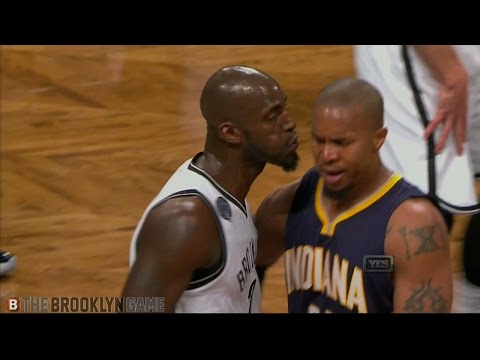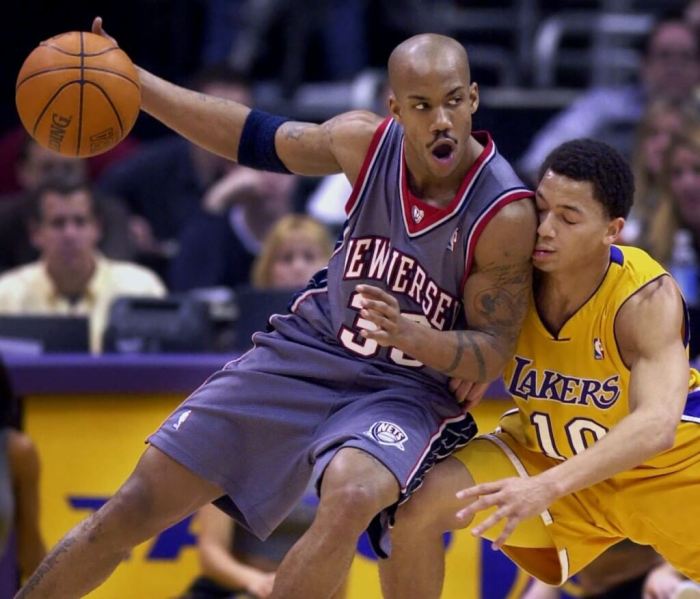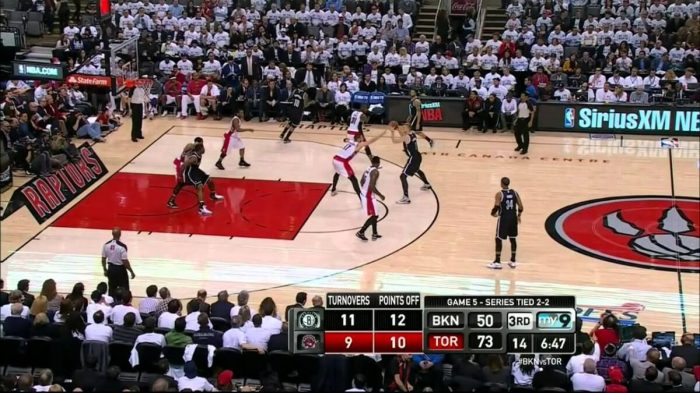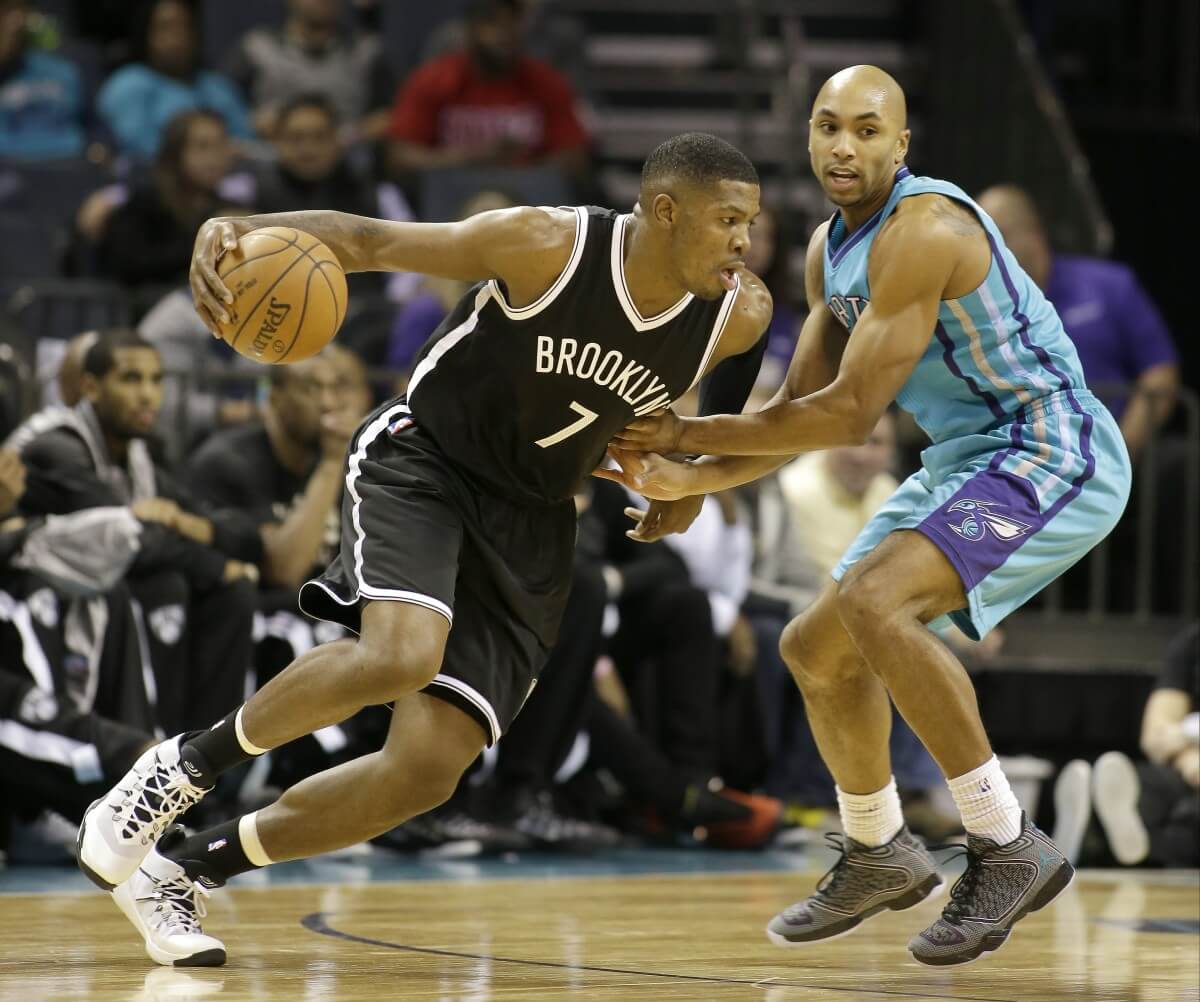
They’re baaaaaack. After nearly beating their all-time record with a full ten days in between trade rumors, a report surfaced Sunday afternoon that the Brooklyn Nets were discussing a deal with the Charlotte Hornets that would send Joe Johnson south for Marvin Williams, Gerald Henderson, and guard & Brooklyn native Lance Stephenson.
It’s not hard to see why the Nets, or the fanbase, would want to make this deal. The team is stagnant, and stagnation means death for a business based in entertainment. A change loosens the debris and scratches the itch. New players! New system! New fun! Getting rid of Joe Johnson’s huge deal! Getting Lance Stephenson back home! Do I have something to hope for yet!?
But at its core, it’s a move to make a move. Those are dangerous. It reeks of desperation. The Nets are trying everything they can to get rid of their core 3, and if the league knows it, they’re going to take advantage. The Nets don’t have to make a deal, they have to make the right deal.
There’s a few reasons why the proposed trade isn’t the right deal. First and foremost: the Nets don’t shed much money with this deal. If that’s all you need to know, skip the next paragraph.
The long answer: Johnson makes $23,180,790 this year and $24,894,863 after, with the former adding to Brooklyn’s enormous luxury tax bill and the latter potentially avoiding it. The Williams-Stephenson-Henderson combo (heretofore referred to as WiStHe, pronounced whis-thee) makes a flat $22 million in each season, with Henderson’s player option in 2015-16 (which he’s expected to exercise). Stephenson also has a team option in 2016-17 for $9.405 million. The Nets stand to save about $3 million in each season on the trade, including luxury tax savings and accounting for the fact that they’ve already paid over half of Johnson’s salary this year.[note]The savings next year could be higher, depending on if they’re in the luxury tax again. But if they’re in the luxury tax again, that’s kind of the problem.[/note]
The only way this could be salvaged — and this is possible — is if the Nets can flip Williams or Henderson for expiring contracts, or they get at least one first-round pick from Charlotte in the deal. That might make sense, if Nets coaches and players can handle the locker room feeling like a revolving door for the next 30 days.
Secondly, Johnson is in the midst of a down year, scoring just 15.5 points per game and dealing with tendonitis for the last month and a half. But he’s most of the reason they’re scoring at all: without him, the Nets offense falls apart completely, scoring just 93.3 points per 100 possessions with Johnson on the bench. That’s a worse offense than every NBA team except the lowly Philadelphia 76ers. He’s their only somewhat healthy player shooting above the league average from three-point range right now. Johnson isn’t worth his contract, but he’s also talented and, again, somewhat healthy.
More importantly, Johnson looks like an Eight-Time All-Star in comparison to WiStHe. For all the clamoring to get Stephenson, who was, in his defense, a solid contributor to last year’s Indiana Pacers playoff team, it’s worth noting that he’s in the midst of a down year even before sitting out 14 games with a pelvic injury. His true shooting percentage of 42.2 percent ranks as the worst in the NBA among all qualified players.
If the Nets made this trade tomorrow, they’d likely start Jack and Stephenson next to each other in what might be the worst three-point shooting combo in league history: the two combined have shot 23-for-133 from beyond the arc this year. That’s 17.3 percent, or less than one-third of what Kyle Korver’s shooting this year from three-point range.[note]53.1 percent, as of Monday morning. Or another way to look at it: Korver averages 1.59 points per 3-point shot, the Jack-Stephenson combo averages .519.[/note]
And that’s not even getting into Stephenson’s checkered history, which includes a post-NBA draft arrest for allegedly throwing his girlfriend down a flight of stairs (charges were later dismissed), a demotion for maturity issues in his rookie season, and he’s recently been criticized as a bad pairing with Hornets guard Kemba Walker, benched in the fourth quarter for other Hornets guards. Humans are evolutionary creatures and can change over time, but there’s a reason the Nets had to gather intel on Stephenson and not others. He’s a talented player that played well a culture uniquely tuned to his needs. It’s possible that being at home gives Stephenson new life, but it’s just as possible that he slides back into undesirable ways. It is not clear that Brooklyn has that culture, especially as they tear down their roster and try to start anew.
The other returns aren’t much brighter. Williams is a former 2nd overall pick that never fulfilled his lofty draft status, instead ending up as a tweener that’s now averaging career-lows in player efficiency rating, points per game/minute/possession, and free throw percentage. He also recently suffered a concussion & broken nose in a game against the Knicks, and is out indefinitely. Henderson showed promise over the past three seasons, but is a career 29.7 percent shooter from deep and is in the midst of — you guessed it — his least productive season since his first two years in the league. To expect them to turn it around requires a leap of faith that a 28-year-old in his 10th NBA season will become something he’s never been, and a 25-year-old will adapt to a new system overnight.
None of this would matter if the Nets didn’t care about being bad. In the NBA, bad can be good: bad can mean a high draft pick, it can mean hope. For the Nets, there’s no incentive to get worse for the sake of one day getting better. For them, bad just means bad: every loss sends them further and further into the lottery, where they’ll swap the rights to their 2015 first-round pick with the Atlanta Hawks, who have won sixteen straight games and lead the Eastern Conference with a 37-8 record.
Therein lies the cruel irony: the Nets shouldn’t trade Joe Johnson, because if they do, they’ll undoubtedly get worse for a pittance in savings, driving up the value of the last asset they gave up for Joe Johnson.

